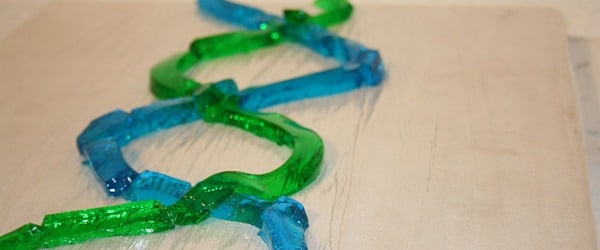How often do you make errors in the lab that ruin a good experiment? Rather than flaws in experimental design, I mean errors like forgetting to add a reagent, pipetting the wrong amount, or following a protocol step wrongly.
Especially early on in your career, errors like this can be a real drain on your productivity. As I talked about earlier, listening to music in the lab may or may not help you here, but here are 10 other ways in which you can reduce your error rate and get more results.
1. Use a Checklist
I have always found that using checklists during experiments is a great way to focus the mind and stop me from forgetting to add something or doing things in the wrong order.
But you don’t have to just believe me… a recent study in the New England Journal of Medicine showed that the use of simple checklists during surgery cut deaths and complications by one-third. So perhaps by adopting checklists, you can reduce the attrition rate for your experiments.
2. For New Protocols and SOPs, Write Out Your Own Versions
When you are performing a new protocol, the worst thing you can do is just jump in and get started without gaining knowledge of the whole procedure first.
That is just asking for things to go wrong. So one rule I always keep is to write out my own version of the protocol in Word before I start, using a standard format. This gives two benefits.
Firstly, it forces you to read through the whole protocol and secondly, it gives you a standardized copy of the protocol that you can keep, annotate, and make checklists from.
3. Annotate
If you make a mistake in a protocol, annotate your copy so that you won’t make the same mistake again.
4. Repetitive Pipetting: Be Consistent and Use Bookmarks
If you are doing a large experiment with a lot of repetition, just letting your mind wander for a few seconds can ruin your experiment if you don’t put in safeguards.
One example is where you have a whole rack of tubes into which you are repetitively pipetting — it’s so easy to get lost and forget where you were. You can guard against this by being rigidly consistent with your pipetting order and by bookmarking your progress by closing the lid (or similar) after you have pipetted.
5. Don’t Multitask Too Much
Multitasking is essential in the lab but should be practiced with care as overdoing it can make you error-prone. More on this here.
6. Get Set Up Before You Start
This is obvious, but it’s often neglected… Make sure you have everything you need before you start. The moment you wander off to pick something up you are inserting an error-inviting distraction into your procedure.
7. Prepare Experiments in Bulk
For experiments you perform often, it pays to put in a bit of time upfront to prepare for a lot of future experiments in advance.
Make stock solutions in bulk (aliquoted if required), prefill tubes with reagents so you can just take them out of the fridge/freezer and go, and create experiment forms to save you from writing out the same stuff in your lab book over and over again (for more on this click here). The more you can prepare upfront, the less room there is for error later.
8. Don’t Spend so Long in the Lab
Ok so you need to put in the hours to make sure you generate results but there is a tradeoff because spending too long in the lab will dull your sharpness. Where the cut-off lies is a personal thing.
9. Get Enough Sleep
Just like too many hours in the lab will dull you, so will lack of hours in bed. Get some sleep!
10. Take responsibility
Especially if you are an early career scientist, problems can occur if you expect others to be responsible for your work, for ensuring that you have everything you need, etc.
Taking the viewpoint early on that the buck starts and stops with you will empower you to make sure that you create a situation where your experiments have the optimal chance of working.






